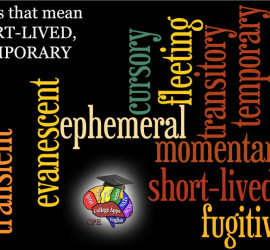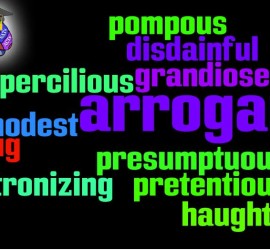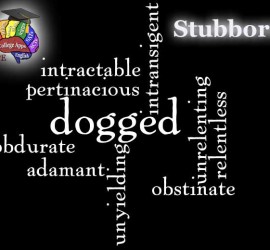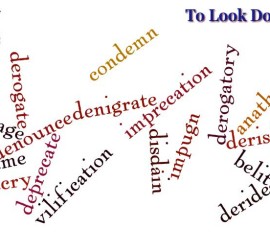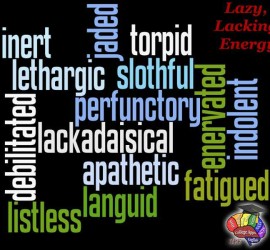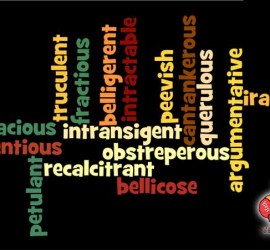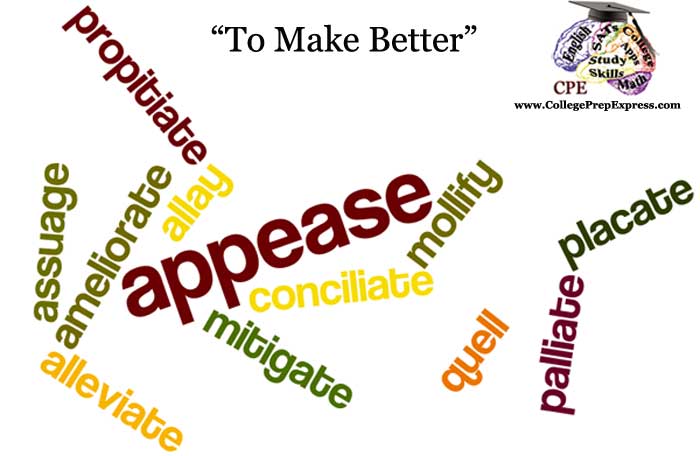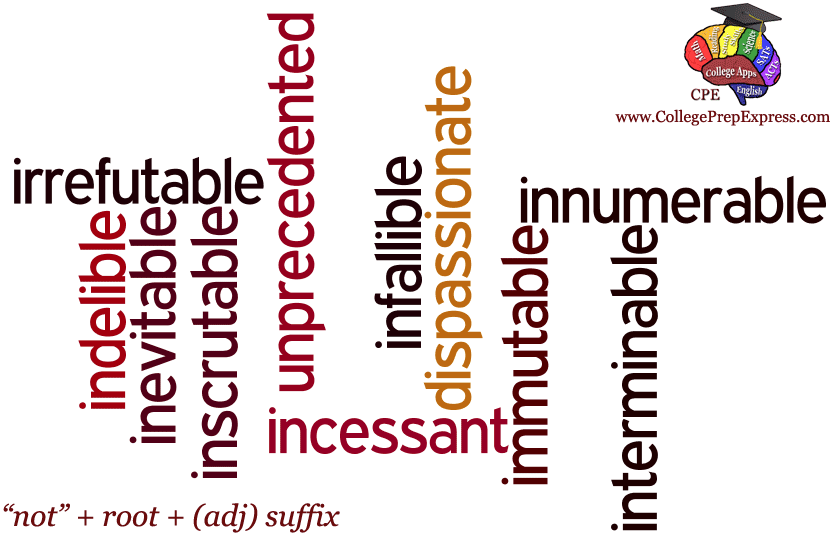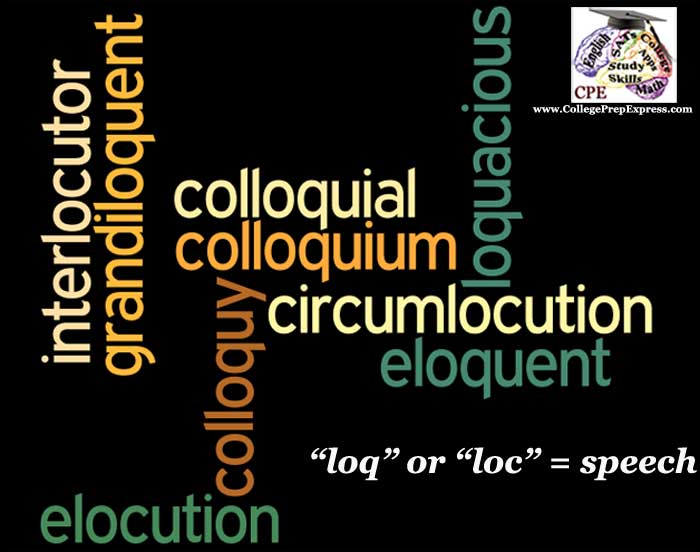Root & Synonym Clusters 10: Short-lived, Temporary
Nothing lasts forever, and the College Board knows it. Many fancy SAT words have the flavor, if not exact meaning of “short-lived” or “temporary,” and here they are: Follow Dr. Yo on Pinterest temporary – adjective – lasting for only a limited period of time; not permanent: a temporary job. transient – adjective – lasting only for a short time; impermanent: a transient cold spell. noun – a person who is staying or working in a place for only a short time transitory – adjective – not permanent: transitory periods of medieval greatness. ephemeral – adjective – lasting for a very short time: fashions are ephemeral. evanescent – adjective – soon passing out of sight, memory, or existence; quickly fading ordisappearing: a shimmering evanescent bubble. fleeting – adjectivelasting for a very short time: hoping to get a fleeting glimpse of […]

